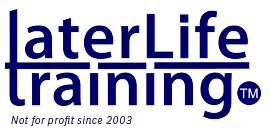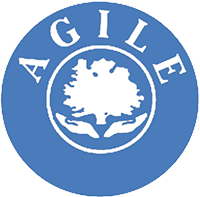 Vision
Vision
CTM is a whole workforce approach because its primary aim is to bring consistency (of language, correct messages) to teams delivering packages of care or those regularly engaging with older people in their homes. CTM provides a series of consistent ‘movement prompts’ to use and embed into existing movements of daily living and offers a series of key messages to communicate during all interactions about sitting and moving more with a view to encouraging and empowering older people to make different decisions in the longer term to better contribute to their health, well-being, confidence and independence.
Course Aims
This educational training course informed by behaviour change theory and the research from LLT’s two evidence based exercise training programmes; Otago and PSI/FaME.
Care to Move IS NOT a structured exercise programme.
The training was originally designed for a domiciliary enablement service in South Wales and following extensive observation and discussion with care service leads and therapy leads the training outcomes were designed in recognition of the missed opportunities observed, and to addresses a clear unmet training need for non qualified workforce (who have the most opportunities for interaction with service users/patients/older people)
The course has three key themes/approaches;
- communication skills to have purposeful conversations about movement (providing a structured framework)
- a series of targeted, specific movements and prompts (for key movements already being performed as part of the usual package of care, daily living)
- and where applicable motivating and empowering older people to carry out home exercise programmes prescribed by therapy services.
These three themes are all designed to give support workers, volunteers confidence to have empowering and motivating interactions with clients, patients and service uses across any setting or service working with older people.
Content
You can view the course timetable here.
Resources
Candidates will be supplied with;
- LLT CTM course handbook
- CTM Movement Series Level 1 – six movements of daily living
- (Level 2 movement series is recommended only if input from physiotherapy/occupational therapy is part of the service/project)
- Formative skills checklist (if requested as part of the training)
Duration
- For CTM Motivators the course duration is 1 day (9 am – 4.30 pm)
LLT may recommend/request an observation visit prior to course day to better understand the working environment/setting to apply the CTM approaches
Certification
Candidates attending the training will receive a Later Life Training Certificate of attendance/completion of formative skills checklist (if requested by the project/service)
Using the CTM approaches
The principles informing CTM can be applied to any setting or workforce. The approaches are explicit and offer consistency to any team who collectively interact with frailer older people, and older people who may be ‘in transition’ to health concerns/functional impairment. It is important that prior to the training the LLT tutor has detailed information about the workforce and their role in order that the CTM approaches can be directly applied to their setting and job role. Since 2014 the CTM approaches training has been delivered to;
- Domiciliary enablement support team (inc seniors and supervisors
- Seniors and carers from residential care setting
- Ward based frailty support workers
- Volunteers as befrienders (CTM approaches used as part of a bespoke training project where volunteers were working with patients discharged from physiotherapy with a home exercise programme)
- Live-in carers
You can read more about a local evaluation of CTM within Christies Care here.
CTM is not an accredited course. We are in the process of gathering evidence for CTM to be a Skills for Care recognised training course.
Invoices will be issued by Later Life Training once training dates are agreed. Payment must be received at least 4 weeks prior to training days in order to allow access to the online training portal. Cost per person starts at £160 based on a minimum of 8. Please contact LLT to discuss your training needs.
Hosts will be required to provide suitable venue/equipment as advised by LLT. We recommend that all candidates are fully briefed about the training well in advance of the training days. LLT will require discussion with you to fully understand the settings and application of the CTM approaches.
We encourage everyone to be responsible for their own learning. In light of this, we ask that you please inform us, at point of application, about any learning support requirements and/or medical conditions support that will help you to access our course content and learn effectively. All information will be treated confidentially and we will make reasonable adjustments to meet your needs.
‘Something is always better than nothing – but we want to strive for more’.
The CTM training offers a ‘start point’ for movement and promoting more of movements already being performed as part of a usual package of care/daily routine. It aims to shift movement behaviors that will hopefully motivate and empower the older person to consider progressing to more targeted and evidence based exercise forming the falls prevention exercise continuum (links to CBE, OEP, PSI).


